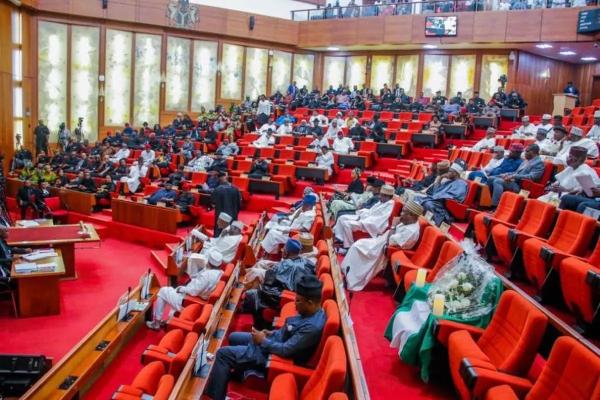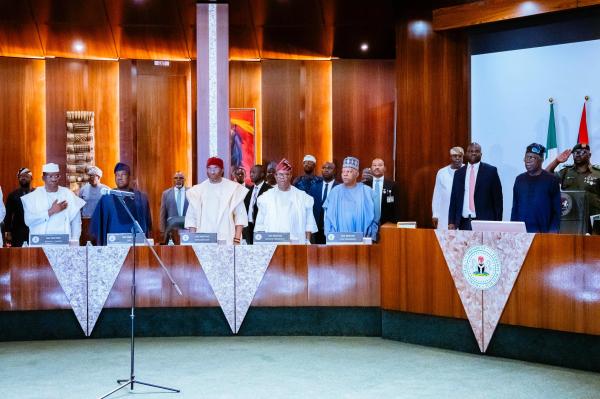
The management with participants during the lecture
The Nigerian economy is a departure from developing rural economy to adopting exotic institutions, a senior principal lecture in the Department of Banking and Finance, The Polytechnic, Ibadan, has said.
Mr Samuel Babalola made this statement while speaking with journalists at the fifth inaugural lecture held at the school premises Wednesday.
“Most of the banking systems in other countries develop from the grassroots; Nigeria needs to emulate that concept. We live and know ourselves in the community, we have checks and balances governing the community. So, if we develop from grassroots to the apex, instead of developing from the apex to the grassroots, development in the economy will be facilitated faster than what we are experiencing currently,” Mr Babalola said.
On the devaluation of the Nigerian currency, Babalola said it was a way of towing global economic line, and described rebasing the economy as more theoretical than reality. “When the fundamentals are not there and you are rebasing, telling Nigerians the economy is superior to South Africa’s and the best in Africa, and we know that the fundamentals are not there.
“How do we describe the state of unemployment; why the devaluation, and why are we trying to dollarize the naira? We are only impressing the world with that.”
The lecture, titled ‘Money, banking and economic development: the Nigerian experience,’ addressed the nexus between money, banking and economic development in the country. He elucidated his highly researched, personal judgment on the impact of money supply, commercial banks and monetary policies on the economic development of Nigeria.
Mr Babalola, however, urged the banks to overhaul their internal control systems and facilitate further the use of e-payment models and advised government to provide the necessary infrastructure for the banking sector to enhance minimal cost of banking services.
To Nigerians, he said, “It is not how much you earn that makes you wealthy, it is how much you save – spend judiciously and invest.”






















